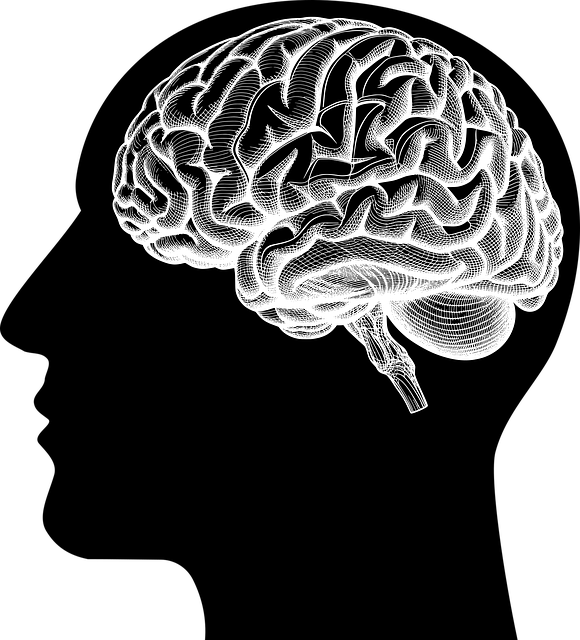Lakewood Mental Health Evaluations (LMHEs) are crucial for personalized therapy strategies, assessing psychological landscapes to uncover distress areas, strengths, and obstacles. Professionals use structured interviews and questionnaires to gather data, enhanced by digital platforms for efficient access to wellness coaching and burn-out prevention. Analyzing LMHE trends and therapy records offers insights into community well-being; researchers can identify correlations between demographics, lifestyle, and access to care, guiding targeted interventions and public awareness campaigns. The integration of mental health data with cultural competency training allows tailored treatment plans, promoting positive outcomes in Lakewood, leveraging advanced analytics for personalized care based on patient history, symptoms, and responses.
“Unveiling the power of data in mental health care, this article explores the transformative potential of Lakewood Mental Health Evaluations as a foundation for effective therapy. We delve into the crucial aspects of data collection, from advanced tools to accurate assessment techniques. By analyzing trends and interpreting results, we unlock actionable strategies.
Learn how the Lakewood Model enhances therapy through data-driven approaches, offering a comprehensive guide for professionals aiming to revolutionize mental health support.”
- Understanding Lakewood Mental Health Evaluations: A Foundation for Effective Therapy
- Data Collection in Mental Health: Tools and Techniques for Accurate Assessment
- Analyzing Trends: Uncovering Insights from Mental Health Data
- Interpreting Results: Translating Data into Actionable Strategies
- Enhancing Therapy with Data-Driven Approaches: The Lakewood Model
Understanding Lakewood Mental Health Evaluations: A Foundation for Effective Therapy

Understanding Lakewood Mental Health Evaluations forms the bedrock for tailoring effective therapy strategies. These evaluations delve into an individual’s psychological and emotional state, identifying areas of distress, strengths, and potential barriers to well-being. By assessing factors like mood, thinking patterns, behaviors, and interpersonal relationships, mental health professionals gain crucial insights that guide treatment plans.
This process is instrumental in various therapeutic approaches, including those focused on conflict resolution techniques and emotional intelligence development. For instance, identifying underlying emotions fueling conflicts can help individuals cultivate healthier coping mechanisms. Moreover, enhancing emotional intelligence through these evaluations empowers individuals to better manage stress, regulate moods, and foster supportive relationships—all essential elements in preventing and managing depression.
Data Collection in Mental Health: Tools and Techniques for Accurate Assessment

Data Collection in Mental Health plays a pivotal role in understanding and treating various psychological conditions. Professionals utilize a multitude of tools and techniques to gather accurate and comprehensive data, essential for effective Lakewood Mental Health Evaluations. These include structured clinical interviews, standardized questionnaires, and observation methods tailored to assess specific aspects of mental wellness. For instance, the Clinical Interview Questionnaires help in documenting symptoms, while the Strengths and Difficulties Questionnaire (SDQ) provides insights into emotional and behavioral functioning.
Moreover, the integration of digital tools has enhanced data collection, making it more efficient and accessible. Online platforms offer Mental Wellness Coaching Programs Development opportunities, allowing individuals to track their progress and engage in self-assessment. Additionally, healthcare providers can use burnout prevention strategies by leveraging these tools to monitor patient outcomes and adjust treatment plans promptly. This holistic approach ensures that Emotional Healing Processes are supported through both traditional and innovative data collection methods.
Analyzing Trends: Uncovering Insights from Mental Health Data

Analyzing trends within mental health data is akin to piecing together a complex puzzle—each piece offers a glimpse into the broader picture of community well-being. By scrutinizing Lakewood Mental Health Evaluations and Therapy records, researchers can identify patterns and insights that may otherwise remain hidden. This process involves sifting through vast datasets to uncover correlations between various factors, such as demographics, lifestyle choices, and access to care. For instance, analyzing trends might reveal a higher prevalence of anxiety disorders among young adults in specific neighborhoods, highlighting the need for targeted interventions and public awareness campaigns development.
Through meticulous data analysis, professionals can also gauge the effectiveness of different therapy approaches and stress reduction methods. By comparing outcomes before and after treatment, they can determine which strategies are most beneficial for managing mood and promoting mental resilience. This knowledge is invaluable for healthcare providers, policymakers, and researchers striving to improve access to quality care. Ultimately, understanding these trends empowers communities to make informed decisions that foster better mental health outcomes.
Interpreting Results: Translating Data into Actionable Strategies

When interpreting mental health data from evaluations and therapy sessions, the next step is to translate these insights into actionable strategies that can improve patient outcomes and overall Lakewood Mental Health. This involves a careful consideration of individual needs, cultural backgrounds, and emotional intelligence. Healthcare providers must be adept at navigating complex datasets to identify patterns and trends, ensuring they are not just analyzing numbers but understanding their significance in the context of each client’s unique journey.
By integrating data insights with best practices in mental wellness and cultural competency training for healthcare providers, effective treatment plans can be devised. This process demands a nuanced approach, recognizing that every individual’s experience is shaped by personal, social, and environmental factors. Through this thoughtful interpretation, professionals can tailor interventions, foster emotional intelligence, and ultimately promote positive mental health outcomes for the diverse range of clients they serve.
Enhancing Therapy with Data-Driven Approaches: The Lakewood Model

In recent years, the field of mental health has witnessed a significant shift towards data-driven approaches, aiming to enhance therapy and improve patient outcomes. One notable example is the Lakewood Model, which leverages mental health evaluations and advanced analytics to tailor therapeutic interventions. This innovative strategy integrates traditional therapy techniques with insights derived from large datasets, allowing for a more personalized and effective treatment experience. By analyzing various factors such as patient history, symptoms, and treatment responses, healthcare professionals can make informed decisions and develop customized care plans.
The Lakewood Model goes beyond the confines of standard therapy sessions by incorporating technology and data analysis into the process. This approach not only improves accuracy in mental health assessments but also enables therapists to incorporate Mind Over Matter Principles effectively. By understanding individual patient needs, therapists can guide them towards managing anxiety relief and fostering overall mental wellness. Moreover, this method ensures that treatment strategies are regularly updated based on continuous data collection and analysis, making it a dynamic and responsive framework for better mental health outcomes.
Mental health data analysis and interpretation, as exemplified by the Lakewood Mental Health Evaluations therapy model, are powerful tools for enhancing therapeutic outcomes. By understanding patient data through comprehensive evaluations, accurate collection techniques, and insightful trend analysis, mental health professionals can tailor interventions effectively. Interpreting results allows for the development of actionable strategies that drive positive change. Adopting data-driven approaches, as demonstrated by the Lakewood approach, not only improves individual therapy but also fosters a more informed and responsive mental healthcare system overall.













